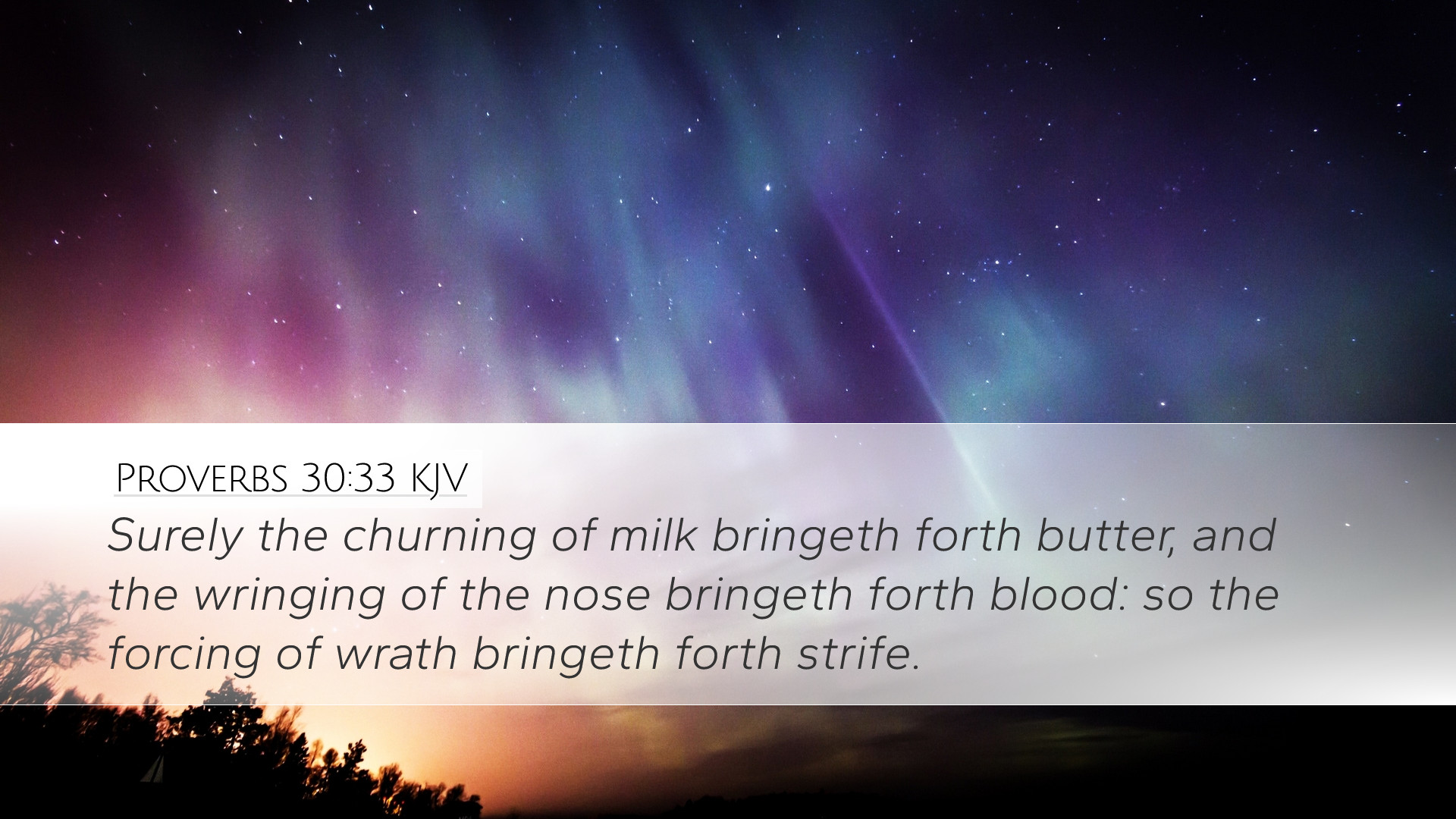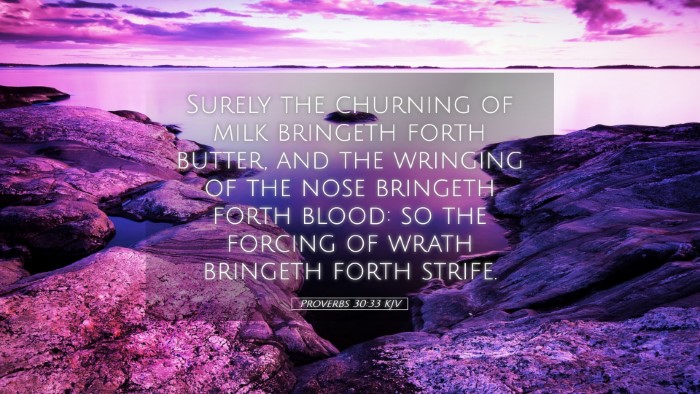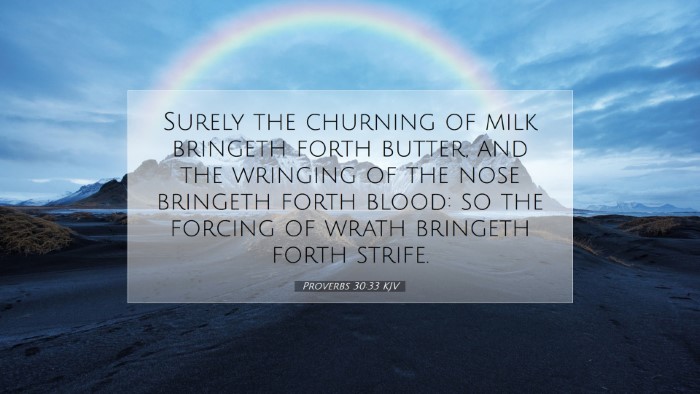Commentary on Proverbs 30:33
Verse: "For as the churning of milk bringeth forth butter, and the wringing of the nose bringeth forth blood: so the forcing of wrath bringeth forth strife." (Proverbs 30:33, KJV)
Introduction
The book of Proverbs contains wisdom literature that imparts practical lessons through concise and impactful sayings. Proverbs 30:33 offers a vivid metaphor comparing the natural processes of churning milk and forcing wrath, illustrating the inevitability of certain outcomes in life. The verse invites deep reflection on human emotions, conflict, and the consequences of our actions.
Exegesis and Analysis
This proverb presents a tripartite metaphor that highlights a cause-and-effect relationship inherent in human behavior. Understanding each component will facilitate a deeper grasp of its overall message.
- The Churning of Milk:
Churning milk produces butter, a process rooted in the transformation of one substance into another. Here, the act of churning symbolizes human effort and the natural progression of life. Matthew Henry observes that just as milk must be agitated to produce butter, so too can situations be stirred for various outcomes.
- The Wringing of the Nose:
This vivid imagery suggests a painful reaction. Albert Barnes elaborates that this action undeniably leads to blood, indicating that certain provocations will result in harm or conflict. The painful squeezing signifies both the intensity of human emotion and the inevitable consequence of a provoked individual.
- The Forcing of Wrath:
The final comparison specifies that as the actions preceding it yield visible results, so does forcing wrath lead to strife. Adam Clarke points out that when emotions such as anger are forced or manipulated, it breeds conflict among individuals; this highlights the dangers of unresolved anger and the volatility of human interaction.
Theological Implications
Proverbs 30:33 reveals profound insights into the nature of human emotions and social interactions. Theologically, it introduces themes of sin, strife, and reconciliation. By illuminating the consequences of our actions, the verse drives home the importance of temperance in the face of conflict.
1. Human Nature and Conflict:
From a theological standpoint, the necessity for conflict resolution arises from our inherent sinful nature. Wrath is an emotion common to humanity; the inevitable occurrence of strife serves as a reminder of our fallen state. This proverb beckons believers to engage in self-reflection, considering how their actions might sow discord or seeds of peace.
2. The Role of Emotions:
Emotions can either guide or mislead us. Understanding their power can help mitigate destructive behavior. Christian doctrine teaches the importance of controlling one's emotions, as reinforced in Proverbs 16:32, which underscores the strength found in patience and restraint. The passionate nature of wrath, if unbridled, leads to chaos and strife within communities and families.
Practical Applications
For pastors, students, and theologians, Proverbs 30:33 resonates with significant practical applications:
- Emotion Management:
Learning to manage one’s emotions is critical for individuals in leadership within the church. The proactive engagement in emotional regulation can help diffuse potential conflicts before they escalate.
- Conflict Resolution:
Educating church members about conflict resolution techniques fosters environments of peace, leading to healthier relationships within the congregation. This verse serves as a foundational teaching against escalating situations in anger.
- Spiritual Growth:
Reflecting on the implications of this proverb encourages spiritual maturity. Believers are called to emulate Christ's patience and grace, moving away from wrathful tendencies towards a more compassionate approach in handling disputes.
Conclusion
Proverbs 30:33 encapsulates a significant truth about the interplay between our actions and their consequences. By understanding the depth of this metaphor, believers are invited to engage in the work of personal transformation and conflict resolution. The verse ultimately illustrates the importance of responding to provocation with wisdom, grace, and reflection, steering clear from the destructive nature of unchecked emotions.
References
The insights presented are derived from a composite of public domain commentaries, including those by Matthew Henry, Albert Barnes, and Adam Clarke, each of whom provides a lens through which to view this scripture thoughtfully.


